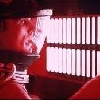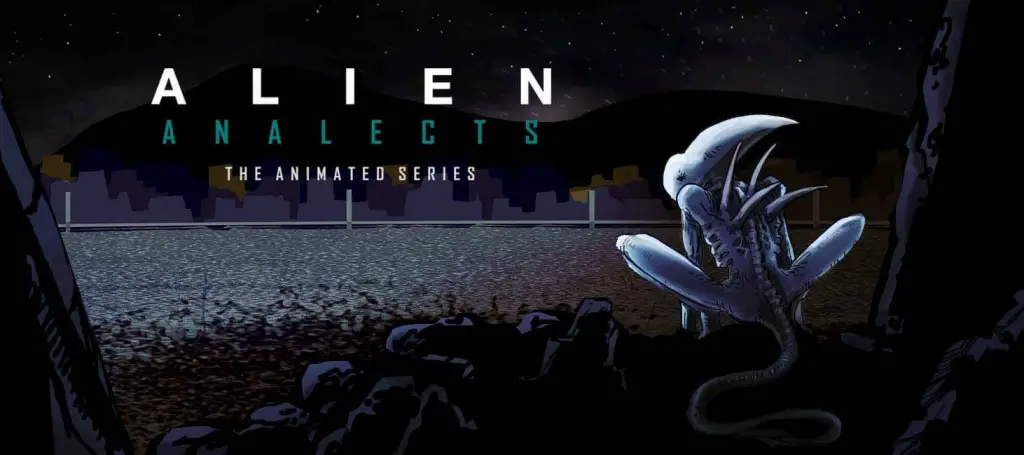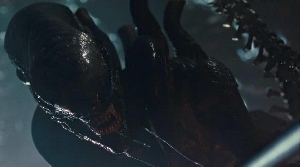Forum Topic
JEC
MemberOvomorphJun-26-2012 3:16 PMI can't believe Prometheus has a 73% rating on Rotten Tomatoes! That most reviewers who rate it positively must surely do so because of its visual content really says a lot about mainstream audiences. Taken as a whole, the film doesn't deserve to be rated higher than 65%, given that it can't stand on its own feet, but needs to stand on the feet of a sequel to be properly understood, and that's assuming a sequel will have a more coherent script.
For what it represents, audiences both mainstream and independent in their thinking, deserved a film that was, to say the least, more coherent. Yes, its visual content was stunning. But the unfolding of events and the characterisation were poor, which is a serious disappointment for a film of this calibre.
Starting from the beginning, Prometheus fails with the opening image. Why introduce the bad guys first? We didn't need to see the "Engineers" seeding a planet in order to understand who they are: the scene following the opening credits, where the protagonist Elizabeth Shaw discovers ancient cave paintings answers that adequately. It was a waste of script setup time. And had it not been included, the scene nearer the end of the film, where we do finally get to see just one of the Engineers, would have been more effective. As it stands, seeing this humanoid again at this late stage leaves no real wonder to the imagination.
One almost gets the feeling that studio bosses were initially presented with a version of Prometheus where the engineer wasn't shown until the end, and not being too happy about it, and no doubt somewhat bored, demanded he is introduced earlier in the film, so Ridley Scott slotted in the Prologue to keep them happy. Either that or it really was a poor script.
Prometheus fails again, and this time much harder, when after discovering the cave paintings, the scene moves straight onto the arrival of the Prometheus at LV-223, with just minor setups to the primary and secondary characters, except for David.
There is about 10 minutes of setup missing here, which was largely allocated to the Prologue. If you exclude the Prologue and include the 10 extra minutes required to get to know and care about the people we are watching, Prometheus would have had a much better start before begins.
One gets the feeling of the whole thing being rushed. There is an urgency to get to the point of the film, to answer the questions we all want to know.
I would like to have seen Elizabeth Shaw's beliefs debated more seriously, not just on a personal level but also professionally, quite possibly by the Weyland Corporation that invested in her, rather than have this whole acceptance of one woman's whim to prove she is right imposed upon my sense of logical appreciation. I would also like to have seen a little more of Peter Weyland. It could still have worked, to have seen him near the start, being cared for and close to dying, and then near the end. The turn up would have been more of a surprise. Sadly, his inclusion is all but irrelevant.
Prometheus fails for a third time when David activates a holographic recording of events that allow us to have some idea of what's going on. Just think about that. If there is one thing that Prometheus does well, it is explain itself through dialogue and poor action sequences. And that is anathema in Hollywood. Instead of being allowed to see the bad guys in action, we are presented with a holographic recording of past events. As far as visual story telling is concerned, that is a cheap shot at an unsuspecting audience. Holographic recording! Who ever records events, except on special occasions, and even then they're not recorded so precisely. This is a poor action sequence, and one that cheats us out of seeing the real thing. The explanations come thick through these holograms.
Another poor action sequence is when Fifield's character turns up as some kind of deformed maniac and starts killing everyone in sight. The less said about that the better.
I can easily overlook Elizabeth Shaw's moment in the Pauling MedPod, despite it being completely ridiculous. But something I can't overlook and that bother's me tremendously is David's sense of wonder and amazement towards something he couldn't possibly comprehend and appreciate the way a human being could. I can see the irony in it, and that kind of works. But I'm not convinced that an android, no matter how advanced, can ever have the capability to appreciate what is essentially thousands of years of psychological and emotional evolution. His awe and wonder towards the engineers should really have been given to Elizabeth Shaw. It was wasted on his character, because no member of the audience could relate to a robot. It should have been expressed through a human being.
All it's other shortcomings can easily be overlooked.


















